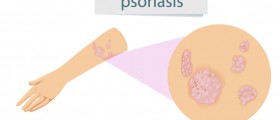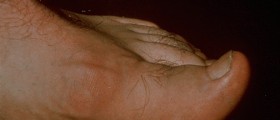Prednisone – Mechanism and Side Effects
Prednisone is a corticosteroid, in the form of syrup, tablets, creams, or injections. Many different medical conditions are treated with Prednisone, including arthritis, pneumonia, systemic lupus erythematosus lymphoma, etc.
It works the same way as other corticosteroids, preventing the production of prostaglandins. Prostaglandins are produced in the body after some trauma or injury, and because of them, the body gets inflamed or experiences different allergic reactions. Corticosteroids affect the body in one more way – they interfere with other systems in the body, and that’s why they cause side effects.

Prednisone is used to treat autoimmune disorders, serious allergic reactions, and severe inflammatory reactions of the body. Most commonly, this medication treats arthritis, allergic reactions to poison ivy, shellfish, or mold, but also scleroderma, MS (multiple sclerosis), and inflammatory myopathies.
The Prednisone dose depends on the person and treated condition. It is a different treatment if there is an inflammation or immune reaction in the body. The seriousness of the infection is also important when deciding the dose of corticosteroids.
Prednisone could cause both short-term and long-term adverse effects. The most common side effect that this medication can cause is weight gain. Prednisone affects the accumulation of fat in the body, and at the same time, it causes fluid retention, leading to changes in body shape and weight.
This drug is also commonly causing skin problems, such as acne. Steroid acne usually affects the face but might also progress to your back and arms.
Prednisone can affect your eyes and cause glaucoma or cataract, and this condition could stay permanent, even if you stopped using corticosteroids.
This drug is also known to cause sleeping problems and to increase the risk of many different infections, both internal and external.
Withdrawal Effects of Prednisone
This medication should not be stopped suddenly, for it may cause withdrawal effects. Doctors always recommend decreasing the dose gradually. Symptoms can become worse if you abruptly stop the Prednisone treatment after using it for a long time.
Patients experiencing Prednisone withdrawal usually complain about weakness, tiredness, abdominal pains, and rapid weight loss. Extreme tiredness and muscle weakness are the most common withdrawal effects, caused by sudden and extreme weight loss. These people can sometimes stay undiagnosed since the withdrawal symptoms are not specific just for Prednisone withdrawal. When suffering from abrupt withdrawal, patients might also experience: hypotension (low blood pressure), pain in the joints, and menstrual problems.
- However, to our knowledge, no studies to date do support this hypothesis in SLE. In an observational study reporting a gradual GC withdrawal in SLE, about a quarter of the patients relapsed, similar to the number reported in our study.
- Furthermore, although one should be careful in drawing a comparison between diseases, it has been reported that continued administration of a very low dose of prednisone or prednisolone to patients with rheumatoid arthritis with a low disease activity status provided better disease control than GC withdrawal, even in case of slow tapering.
- It is important to also consider that in our study the vast majority of patients, following the interruption of GC intake, remained on long-term treatment with hydroxychloroquine and thus, indeed, in daily practice SLE treatment is almost never abruptly stopped.
- The issue raised by Dr Sabio is of major importance and emphasises that clinicians should in the future (1) determine whether clinical characteristics and biomarkers could help to identify patients with SLE who are at a lower risk of relapse and therefore would benefit from discontinuation of their chronic maintenance treatment and (2) challenge, in academic clinical trials, the modalities of therapeutic de-escalation in patients in remission, in particular in view of the low number of studies that have been reported in this field.
















Your thoughts on this
Loading...